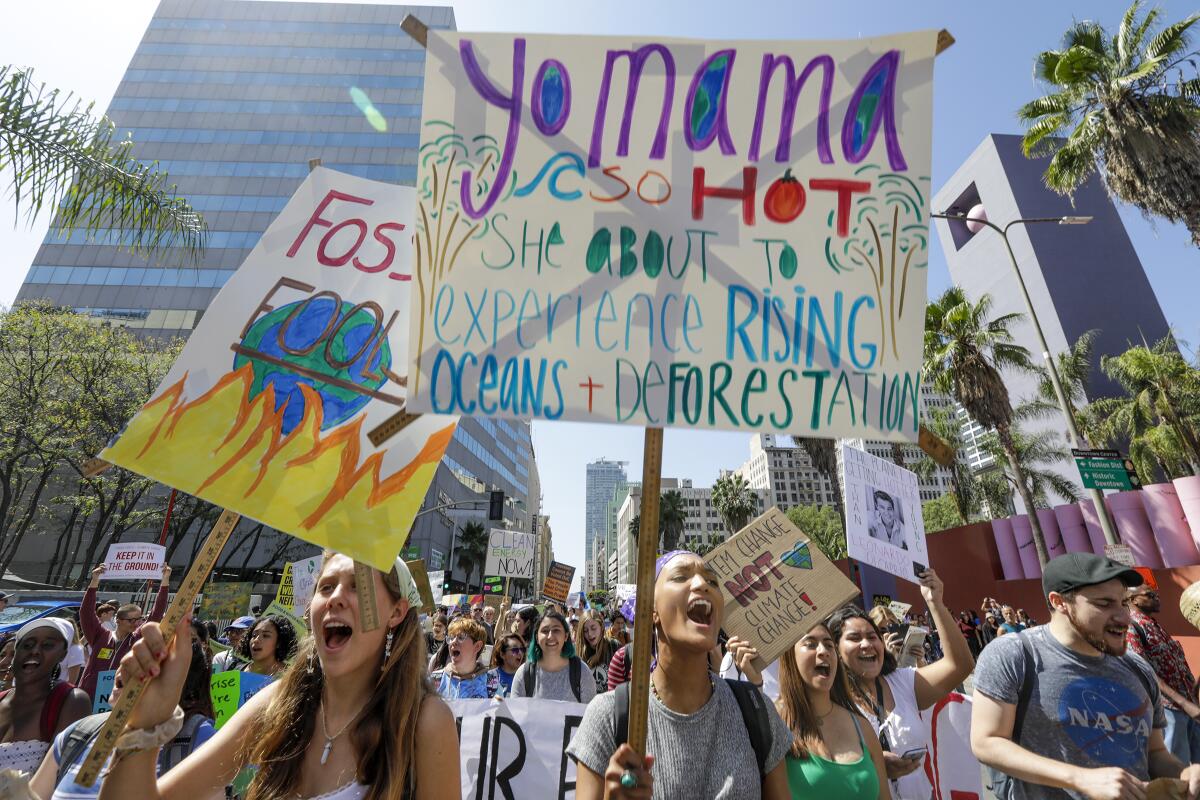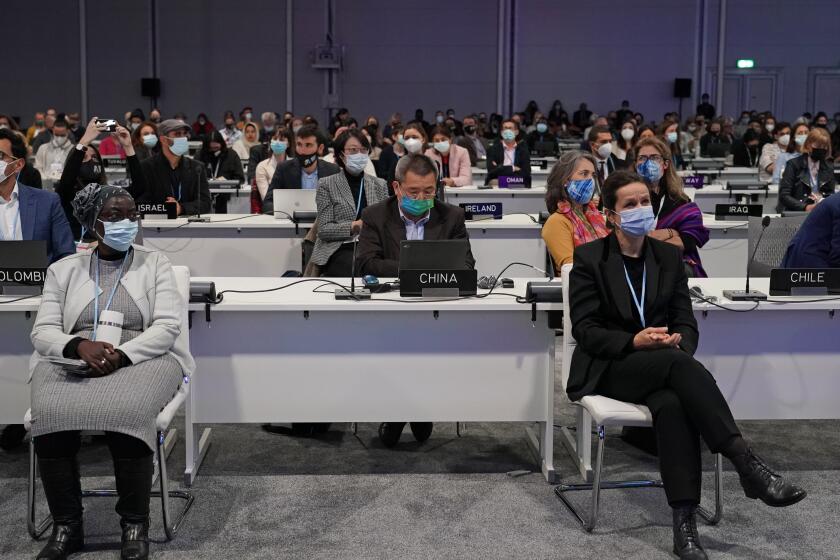Let’s make 2022 the year we all get angry about climate inaction

- Share via
Will 2022 be the year world leaders finally accept the science and act on the biggest threat to our collective existence? It’s an infuriating question that arises every year, while the inaction of politicians on climate change keeps steering our planet closer to an unacceptable fate.
As a reporter who has covered climate and the environment for more than a decade, I’ve struggled with how to deal emotionally with what is happening to the planet. How should I feel about the rapidly escalating crisis that is manifesting itself in deadly air pollution, heat waves, destructive wildfires, storms and flooding, and the woefully inadequate response by our leaders?
It’s easy to be overwhelmed and slip into despair. For all the talk of a climate emergency, the heat-trapping gases we spew into the atmosphere keep building up, and more than 80% of the world’s energy is still generated by burning fossil fuels. If this is our world with just over 2 degrees Fahrenheit of warming, how bad will it get if the planet heats up another degree, or more? Young people are, understandably, deeply worried and feel betrayed.
There are at the same time, signs of hope, a feeling I see many politicians eager to embrace, often with what seems like little justification. World leaders applauded themselves for the watered-down half measures and piecemeal commitments made at November’s global climate summit in Glasgow, Scotland, when it was clearly a failure. But decades of delay have lost us the luxury of cutting emissions gradually. And we can’t blunt climate change by dressing up another year of insufficient action as an incremental “win.”
The Glasgow climate summit brought new pledges and other signs of incremental progress, but far too little action to avert dire warming. It was more a failure than a success.
To move forward we should set aside both despair and hope in favor of something more constructive: anger.
Anger is what social scientists call a “motivating emotion,” because of its capacity to provoke action by others. In a recently published study, researchers at the London School of Economics and Political Science, Pomona College and Princeton University found that when participants across the political spectrum were told that growing numbers of people are angry about climate change, they were more inclined to express their own outrage and support taking action.
The findings, according to the researchers, suggest that messages on social media, television and news reports about collective anger over climate inaction are more empowering than ones about scientific consensus or public concern.
“Anger appears to convince more people that others will soon act, and that makes them want to join,” the authors wrote.
As youth activists and other journalists have observed, public outrage can be a powerful tool against all kinds of injustice, from institutional violence and racial discrimination to the poisoning of the air with pollution. Anger often fuels good journalism, because it can drive and focus the process of revealing wrongdoing, holding those responsible to account and pursuing justice for those who are harmed.
There is no injustice more deserving of our collective, focused rage than climate change. Escalating public anger can make people in positions of power uncomfortable, both those who act blatantly at the behest of fossil fuel interests and those who are trying to address climate change but doing far too little to avoid catastrophic warming. It can push politicians whose inclinations are to claim weak compromises and pledges as victories, like at the Glasgow summit, which Swedish activist Greta Thunberg said had “turned into a PR event” with leaders “actively creating loopholes” in order to keep profiting from a “destructive system.”
Without anger flowing outward, it is too easy to blame only yourself. Should I drive an electric car, travel less or eat less meat? Should I install solar panels or an energy-efficient heat pump instead of burning methane gas to heat my home? The fossil fuel industry has promoted the idea of personal responsibility for reducing pollution, and the ongoing guilt that creates, as a core of its decades-long campaign to deceive and confuse the public about climate change. Oil companies want us preoccupied with our carbon footprints when our outrage should be directed at them and the politicians that do their bidding.
So my hope for this year is that more of us resolve to give ourselves a break and let everyone who speaks and acts on our behalf, from local government officials to federal representatives, know how enraged we are that they are not doing enough to prevent a catastrophe. It could make a bigger difference than anything else we do.
More to Read
A cure for the common opinion
Get thought-provoking perspectives with our weekly newsletter.
You may occasionally receive promotional content from the Los Angeles Times.











